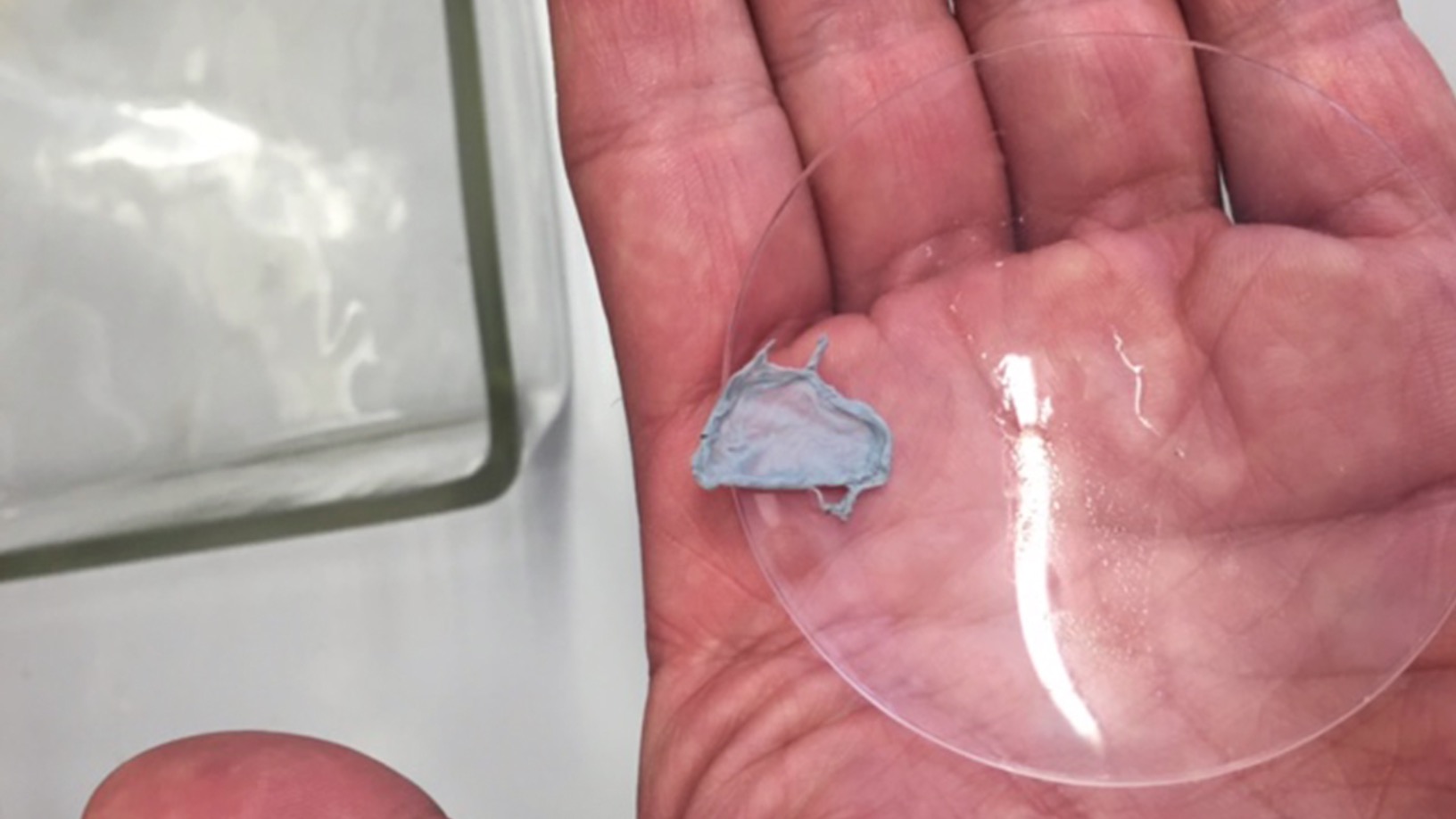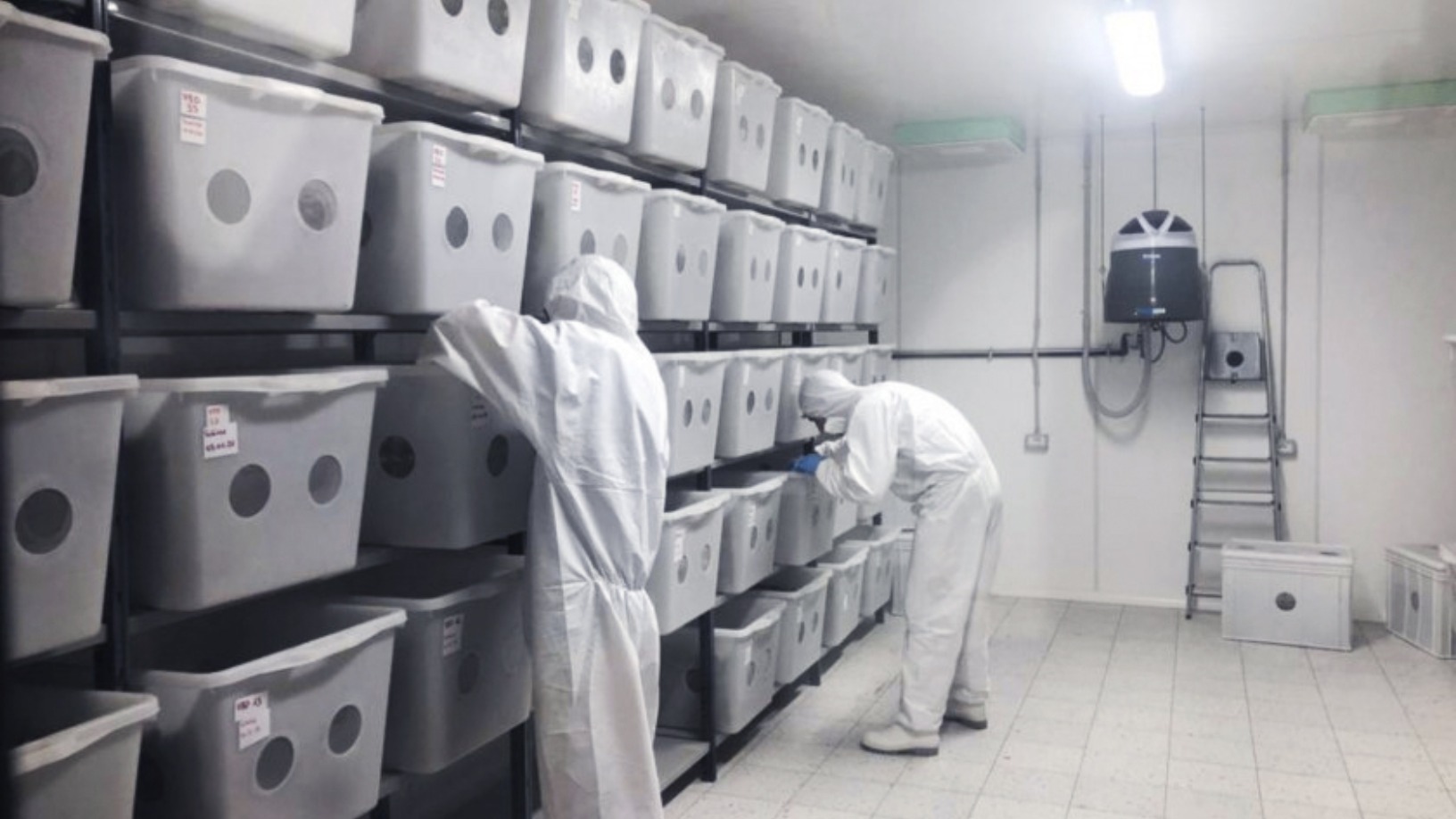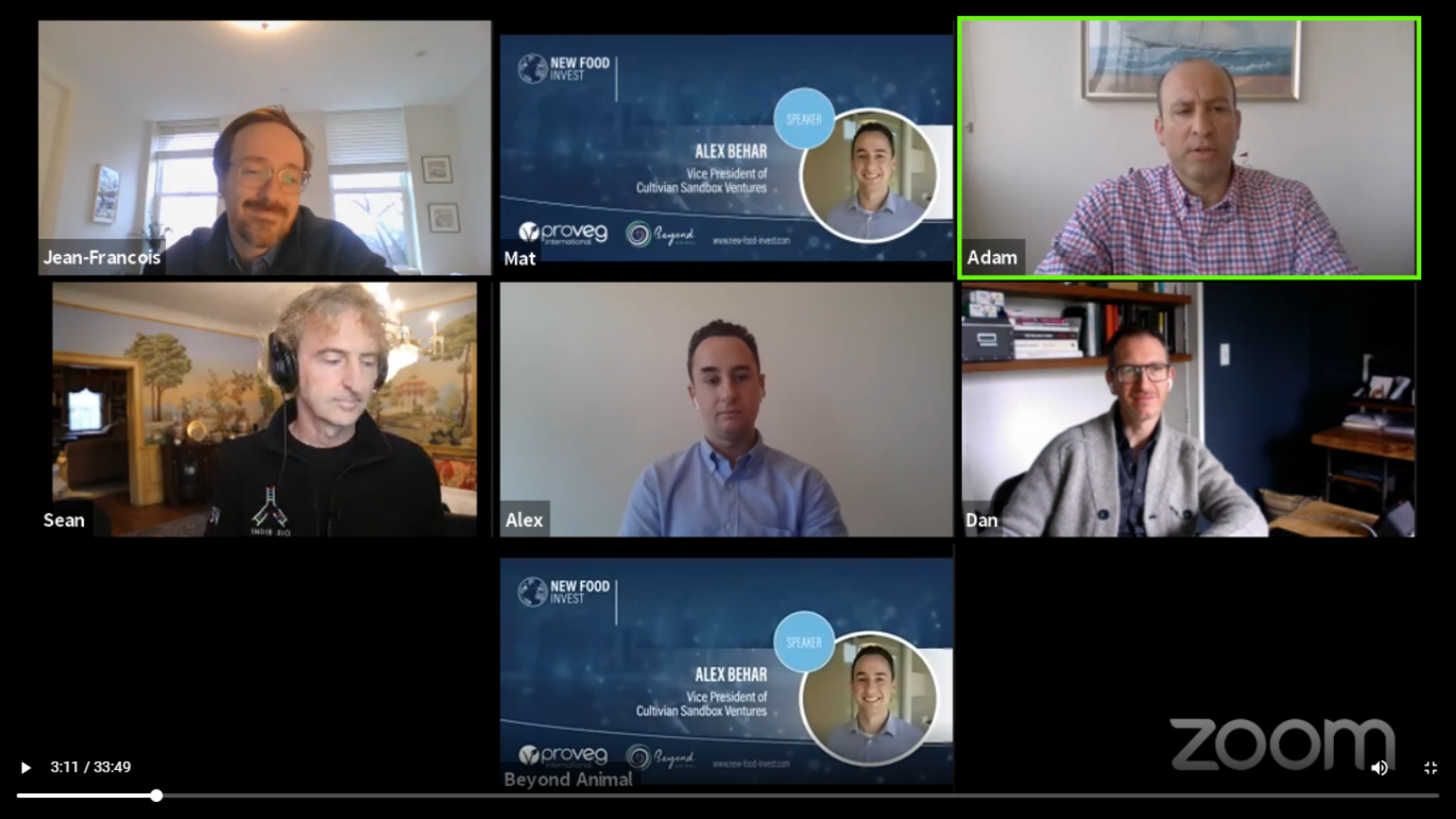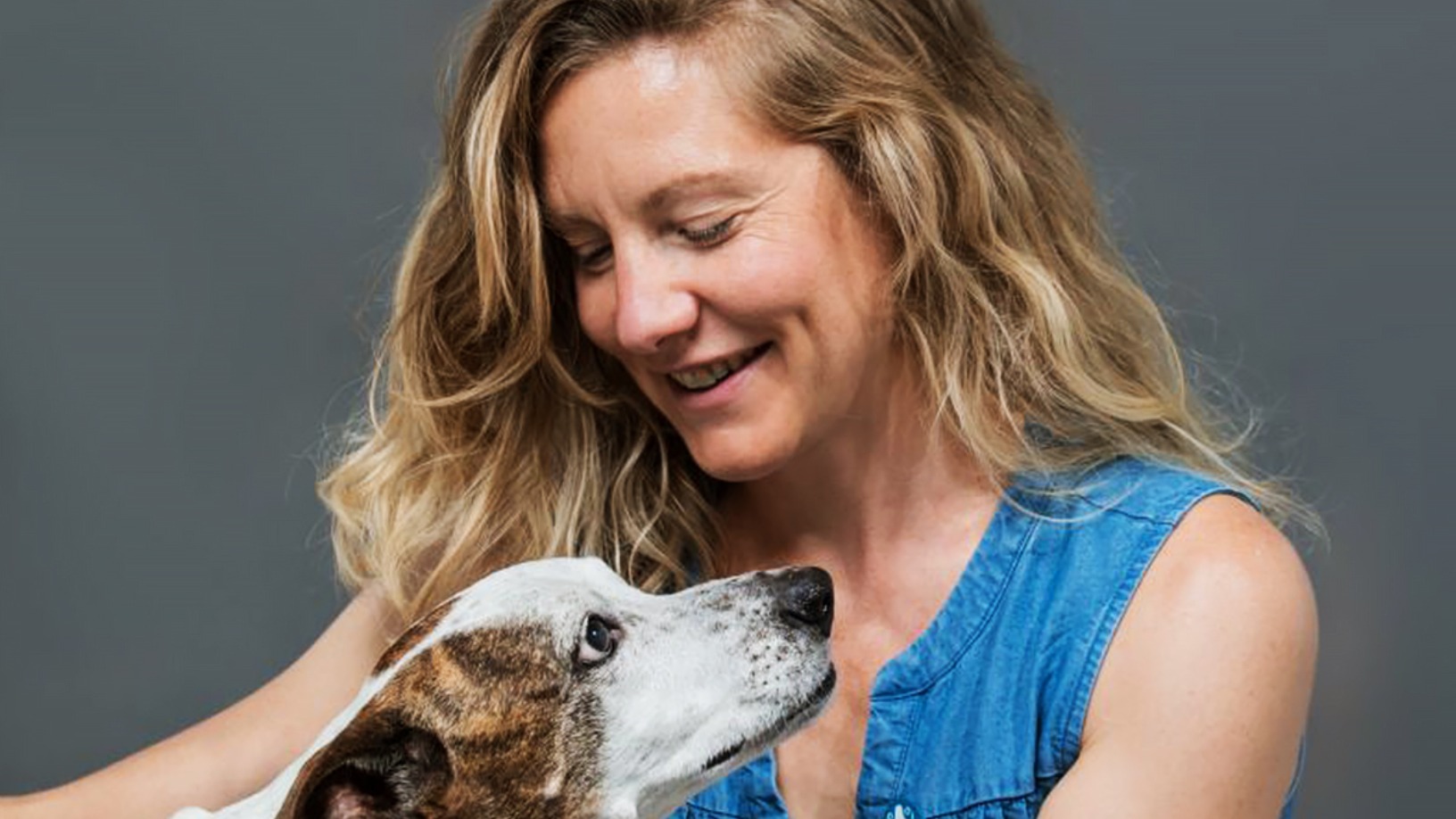Dutch biotech startup Qorium has developed proprietary technology to produce “clean leather” sheets using collagen grown from skin cells taken from a cow. Marketing its product as an environmentally friendly alternative to the notoriously polluting process of raising animals and tanning cowhides, the company expects to produce clean leather prototypes of high-end consumer goods such as handbags or sneakers by early 2023.
Founded in 2014, Qorium first grew a small piece of collagen about the size of a €2 coin in 2018. The company says it now has proof of concept that it can cultivate leather in the scalable quantities required by premium consumer goods brands.
“Our thinking is to grow it in 3-meter by 3-meter sheets, which will be layered together to create up to the standard thickness of 1.5 millimeters,” Qorium co-CEO and co-founder Stef Kranendijk said in an interview. “We think it will take about 28 days to grow a sheet [of collagen] compared with between six months to a year to grow a calf, or up to seven years for a mature cow" for their hide.
Qorium raised €2.6m in Series A funding in July to expand the R&D of its cell-cultured collagen-based leather product. The round was led by Brightlands Venture Partners, manager of the BVP Fund IV, whose goal is to invest in innovative companies operating in the Brightlands university ecosystem in Holland, and an unnamed biotech investor.
Qorium plans to set up its R&D activities at Brightlands Maastricht Health Campus, where its Chief Scientific Officer (CSO) and co-founder Mark Post, the Dutch tissue-engineering expert and father of cell-based meat, is based. Post is also CSO and co-founder of Mosa Meat, which produced the world's first lab-grown burger back in 2013.
Uses 99% less water
The process developed by Qorium involves taking a biopsy of skin cells from a cow, cultivating them in a lab, and transforming them into collagen sheets. Multiple sheets are then combined to create the desired leather thickness. The collagen sheet is then tanned with natural products to transform it into leather. Qorium plans to sell the sheets as a semi-manufactured product, allowing clients to dye and work the leather according to their own specifications.
Qorium says the process for developing its leather product uses 99% less water and 66% less energy than the conventional method of transforming cowhide into leather. According to the company, its product is more sustainable than traditional leather because no methane or CO2 emissions are produced.
“When you take hides from a slaughterhouse, you have to get rid of the hair, fat, and proteins that you cannot tan. Collagen is the only protein [of the hide] that is tannable. To get to that stage, the chemical process is pretty harsh and takes a lot of mechanical work, which generates a lot of waste,” explained Qorium co-CEO and co-founder Rutger Ploem, who ran his family’s tanning business for three decades before founding Qorium.
“But if you eliminate that part of the tanning process and start from a sheet of collagen leather, you can imagine the difference it will make,” he added.
Same smell and strength
After finishing his university studies, Ploem joined the family business only to find that sourcing high-quality raw material was challenging because one cannot see the quality of the hide before the hair is removed. It was also around the time of the bovine spongiform encephalopathy, or mad cow disease, crisis in the 1990s when hides were scarce.
"Why are we so dependent on this product, I thought. Why is it not just possible to grow collagen in a factory?. At the time, for me, it was not about sustainability, but over the years, I realized this could be a fantastic development that makes leather a very clean product.”
While several companies produce vegan leather from foodstuffs like mushrooms or mangoes, Ploem and Kranendijk said the cell-cultivated collagen leather would, unlike leather from vegan products, have the same smell, strength and properties as traditional leather.
“Mushroom is not leather. Leather is a tanned hide,” Ploem said. “It is very difficult to get all the specifications of real leather into a new material.”
“When you look at a handbag made by one of these [vegan leather] companies, it looks very nice, but the handle is not made from the mushroom leather because it is not strong enough and it cannot withstand the sweat of your hand like real leather can,” Kranendijk added.
Premium markets
Qorium’s target clients are global purveyors of luxury goods products like French and German multinationals, Hermès, LVMH, BMW and Adidas. The company says it has already received strong interest from several major luxury goods makers.
“BMW, for example, is trying to find other materials or types of leather. They are doing everything to get rid of the polluting image of the automotive today,” Ploem said.
After making prototypes of high-end consumer products in collaboration with partner brands, Qorium intends to raise a further €20m to build a pilot plant or €80m–€100m for a complete factory, depending on the market’s responses to its prototypes. “The financing could come from other VCs or loans, or it could be strategic partnerships,” Kranendijk said.
Qorium plans to initially price its premium quality leather sheets at €200–€250 per sqm, compared with €100–€125 per sqm for traditional leather. Kranendijk said the price difference is reasonable because about half of the conventional leather hide used is usually wasted because of imperfections. In contrast, clients will be able to use all of a Qorium leather sheet. He expects the price of the lab-grown leather to drop to €90 per sqm by 2026.











